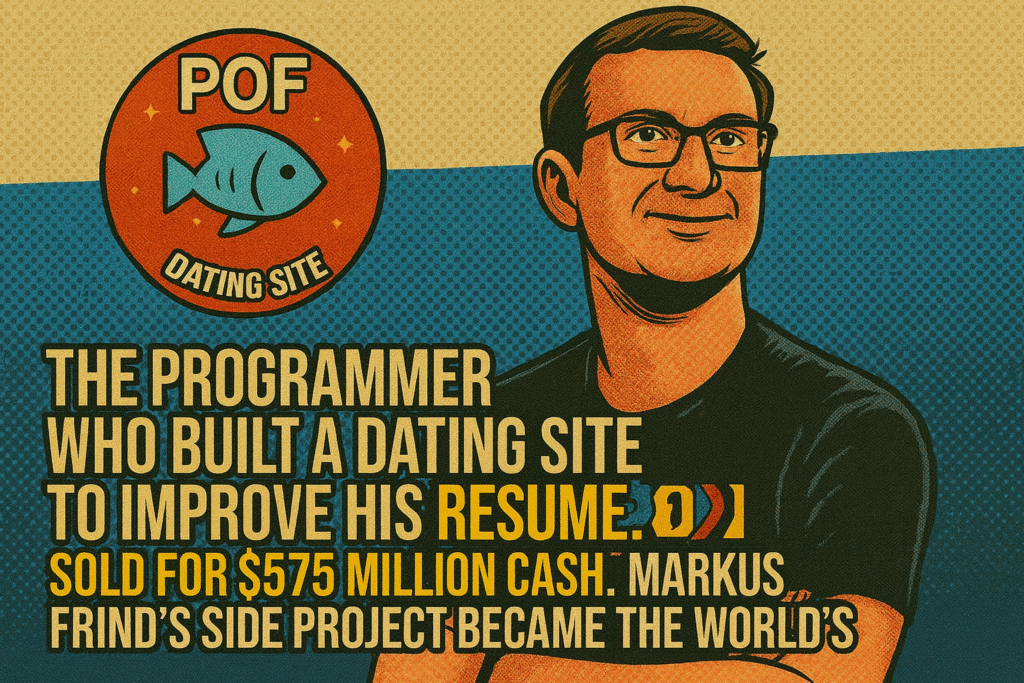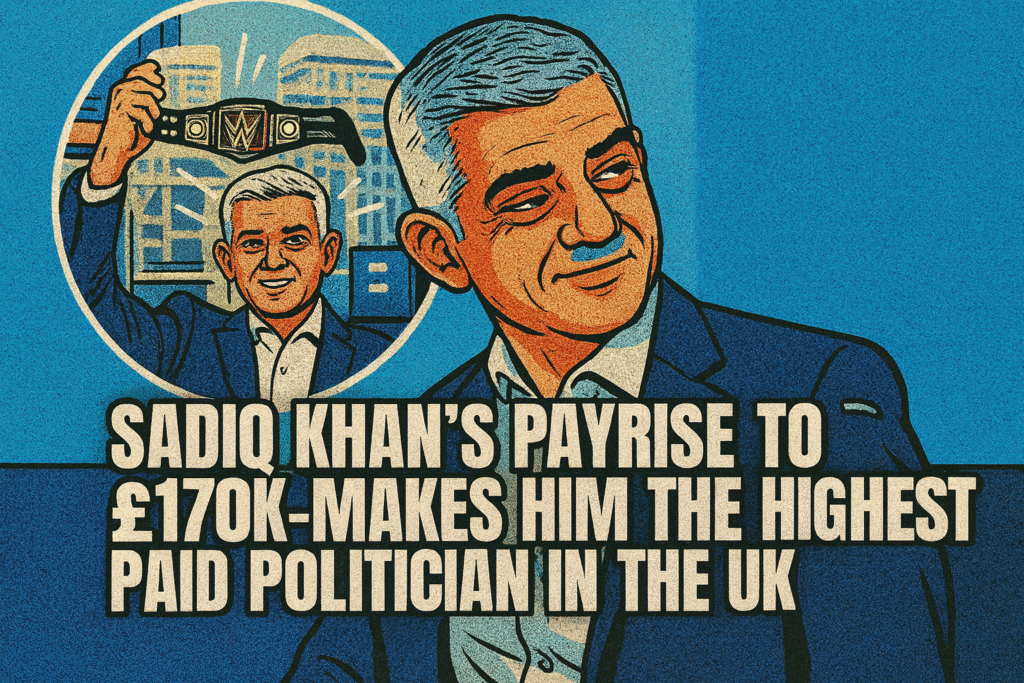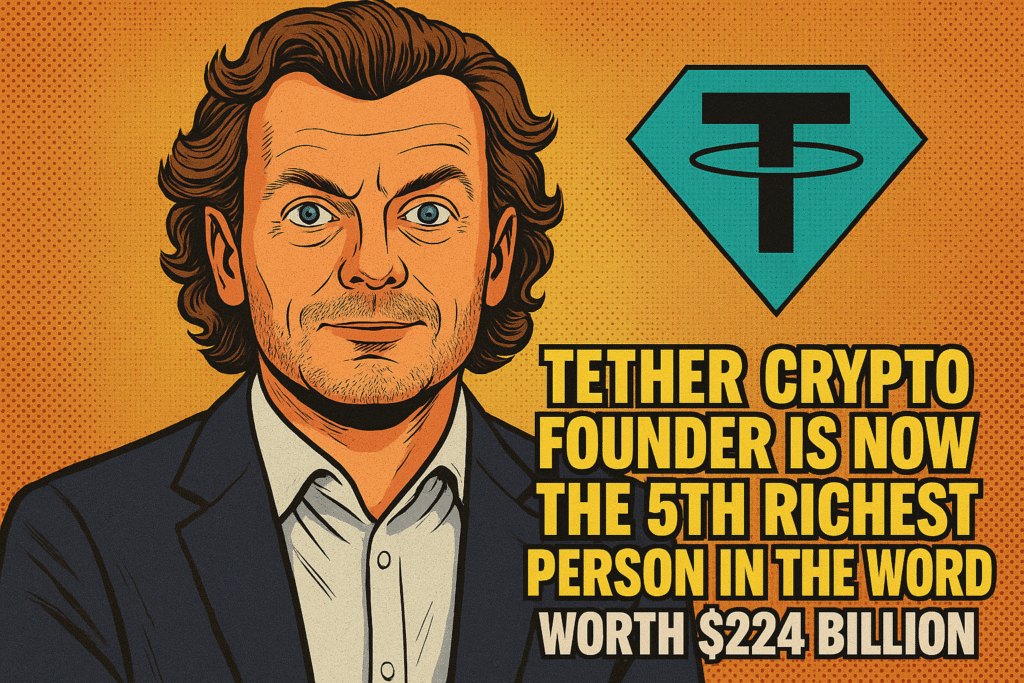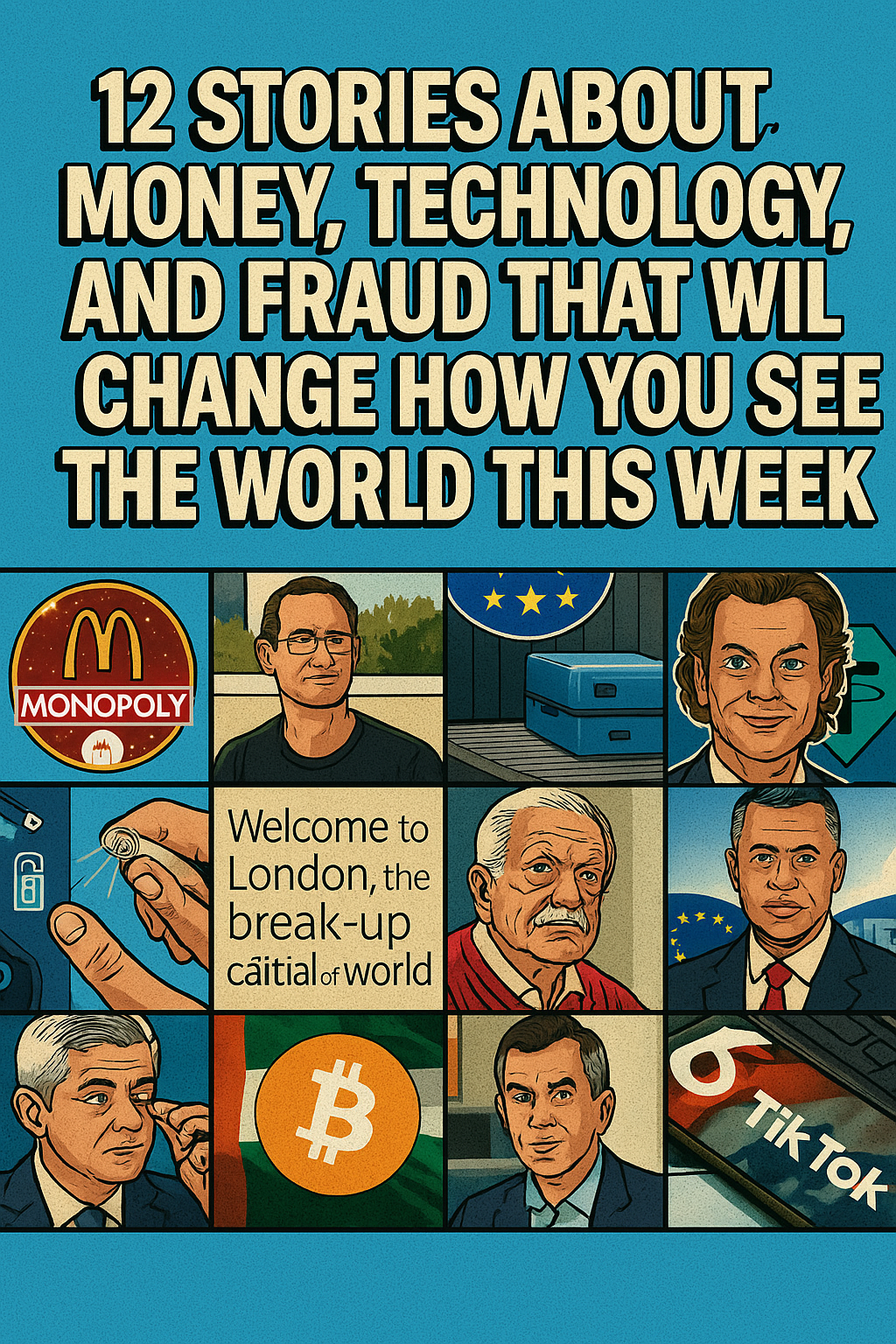Your basket is currently empty!
Key Takeaways
What You’ll Learn From These 12 Stories:
- How a security director stole $24 million from McDonald’s Monopoly for over a decade before an anonymous tip led to his downfall
- Why a solo programmer’s side project to learn coding sold for $575 million and became one of the most successful bootstrap startups ever
- How Sweden became the global leader in human microchip implants, with thousands replacing cards and keys with hand technology
- When European airports will finally end the frustrating 100ml liquid restriction that’s plagued travelers since 2006
- Why London’s Mayor earns more than the UK Prime Minister and what it reveals about political compensation debates
- How FDA approved eye drops can eliminate reading glasses in 15 minutes without surgery or permanent changes
- What makes London the world’s “divorce capital” and why wealthy couples race to file in British courts
- How a former plastic surgeon became the fifth richest person on Earth by creating a $224 billion cryptocurrency
- Why the UAE’s automatic crypto tax sharing marks the end of using digital currency to avoid taxes
- What the shocking PGA Tour and Saudi backed LIV Golf merger reveals about money versus morals in professional sports
- How hip hop legend Nas turned celebrity status into equity ownership of a $5 billion NYC casino development
- Why teaching business courses from behind bars shows both the potential and problems of prison education reform
The Bigger Picture: These stories expose the hidden mechanics of fraud, wealth creation, technological adoption, legal jurisdiction, and how power actually operates when most people aren’t paying attention.
The McDonald’s Monopoly Fraud: The $24 Million Scam


How the FBI Exposed America’s Biggest Fast Food Fraud
For over a decade, Jerome Jacobson orchestrated one of the most brazen frauds in corporate history. As head of security at Simon Marketing, the company managing McDonald’s Monopoly promotion, Jacobson had access to every high value winning game piece. Instead of protecting them, he stole nearly all of them.
Between 1989 and 2001, Jacobson built a network of over 50 co-conspirators who would claim the prizes and split the winnings with him. The scheme netted approximately $24 million, with virtually no legitimate winners claiming major prizes during this period.
The fraud unraveled in 2001 when an anonymous tip reached the FBI. Operation Final Answer revealed the stunning scope: nearly every significant McDonald’s Monopoly winner since 1995 was part of Jacobson’s network. Coordinated raids in August 2001 brought down the entire operation.
Jacobson received a three year prison sentence, serving just over two years. The case exposed critical security vulnerabilities in promotional campaigns and led to industry wide reforms. McDonald’s implemented stringent oversight measures, including third party auditing and separation of duties to prevent any single individual from controlling prize distribution.
The scandal became the subject of HBO’s 2020 documentary “McMillions,” introducing the story to a new generation. It remains a cautionary tale about insider threats and the importance of robust corporate security measures.
Key Takeaway: Even the most trusted employees require oversight. The McDonald’s Monopoly fraud demonstrates why organizations must implement checks and balances at every level, especially for those responsible for security.
POF Dating Site: From Resume Project to $575 Million Success


How Markus Frind Built a Dating Empire as a Side Project
In 2003, Markus Frind was a young programmer looking to improve his resume by learning ASP.NET. His practice project? A simple dating website he called Plenty of Fish (POF). Within a decade, that side project would sell for $575 million, making it one of the most successful bootstrap startups in internet history.
Frind’s approach was revolutionary in its simplicity. While competitors like Match.com charged subscription fees, POF remained completely free, monetizing through advertising instead. This freemium model attracted millions of users who couldn’t afford or didn’t want to pay for dating services.
Running the site almost single handedly from his Vancouver apartment, Frind kept operational costs remarkably low. He wrote the code, managed servers, and handled customer service, often working alone while the site generated millions in advertising revenue. At its peak, POF was generating over $10 million annually with Frind as essentially the only employee.
The site’s success stemmed from understanding user psychology and SEO optimization. Frind aggressively optimized POF for search engines, ensuring it appeared at the top of results for dating related queries. The combination of free access, simple interface, and high search visibility created explosive growth.
By 2015, POF boasted over 100 million registered users and generated 150 million monthly visits. That year, Match Group acquired POF for $575 million in cash, transforming Frind’s resume building project into one of the most lucrative exits in online dating history.
Frind’s story epitomizes the power of solving a real problem with a simple solution. While competitors built complex matching algorithms and premium features, POF succeeded by simply being free and accessible.
Key Takeaway: Side projects can become empire building opportunities. Frind’s success came from keeping things simple, understanding his market, and mastering SEO, proving you don’t need venture capital or a large team to build something valuable.
Sweden’s Microchip Implants: The Future of Contactless Living


Thousands of Swedes Are Replacing Cards and Keys with Hand Implants
Sweden has emerged as the unexpected global leader in human microchip implantation, with thousands of citizens voluntarily having RFID chips inserted into their hands. These rice sized implants are replacing ID cards, credit cards, train tickets, and even door keys, representing a radical shift toward seamless, contactless living.
The technology uses Near Field Communication (NFC), the same system powering contactless payment cards. A tiny chip injected between the thumb and forefinger can store multiple credentials, allowing users to access buildings, pay for purchases, and board public transportation with a simple hand wave.
Swedish company Biohax International has led the adoption, partnering with employers to offer chip implantation as a workplace benefit. Employees at companies like Epicenter, a Stockholm tech hub, have embraced the technology enthusiastically. Over 4,000 Swedes had received implants by 2018, with numbers continuing to grow.
Proponents cite convenience and security benefits. Unlike cards that can be lost or stolen, an implant remains with you permanently. The chips use passive technology, requiring no battery and only activating when near a reader. They cannot track location or store personal data beyond what users choose to load.
Critics raise privacy concerns and question the long term health effects of implanted technology. Data security experts warn about potential hacking risks, though the chips’ limited range makes them difficult to scan without physical proximity. Religious and philosophical objections also exist, with some viewing implants as dehumanizing.
Sweden’s cultural embrace of technology and high trust in institutions has enabled this adoption. The country already leads in cashless transactions and digital services, making implants a natural progression rather than a radical leap.
The trend may preview humanity’s technological future. As devices shrink and integration deepens, the line between human and technology continues to blur. Whether other nations follow Sweden’s lead depends on cultural attitudes toward privacy, convenience, and bodily autonomy.
Key Takeaway: Sweden’s microchip adoption shows how technology can eliminate everyday friction, but raises important questions about privacy, security, and what we’re willing to sacrifice for convenience.
EU Airport Liquid Limits: The End of the 100ml Rule


New Security Technology Will End the 100ml Liquid Restriction
After nearly two decades of travel frustration, European airports are finally ditching the 100ml liquid limit for hand baggage. The restriction, implemented in 2006 following a foiled terrorist plot, required passengers to place liquids, gels, and aerosols in tiny containers inside clear plastic bags, a security measure that’s caused countless delays and confiscated water bottles.
The change comes thanks to advanced CT (computed tomography) scanning technology that provides 3D images of bag contents. Unlike traditional X ray machines, these scanners can detect explosive materials regardless of liquid volume, eliminating the need for size restrictions.
Major EU airports must install the new screening equipment by 2024, though implementation timelines vary by country. London City Airport pioneered the technology in 2021, allowing passengers to keep laptops and liquids in their bags. Amsterdam’s Schiphol, Rome’s Fiumicino, and other major hubs are rapidly following suit.
For travelers, this represents one of the most significant improvements in airport security convenience since its inception. No more decanting shampoo into travel sized bottles, no more throwing away expensive cosmetics, and no more delays at security checkpoints as passengers fumble with plastic bags.
The original restriction emerged from Operation Overt in 2006, when UK authorities thwarted a plot to detonate liquid explosives on transatlantic flights. The 100ml limit was an interim measure that became permanent, despite being based more on caution than precise scientific necessity.
Aviation experts estimate the new technology could reduce security processing times by 30%, significantly easing congestion at busy hubs. Passengers can carry full sized liquids, keep electronics in bags, and move through screening more quickly.
However, global implementation faces challenges. While the EU and UK are moving forward, other regions including the United States have been slower to adopt the technology due to cost and infrastructure requirements. Travelers may face confusing variations in rules depending on their departure and connection airports.
Key Takeaway: Technology is finally catching up with security needs, ending one of air travel’s most annoying restrictions while maintaining passenger safety.
Sadiq Khan’s Payrise: UK’s Highest Paid Politician


London Mayor’s £170,000 Salary Sparks Political Debate
Sadiq Khan’s 2023 payrise to £170,000 made him the highest paid elected politician in the United Kingdom, surpassing even the Prime Minister’s salary of approximately £167,000. The increase sparked immediate controversy about political compensation, cost of living in London, and priorities during an economic crisis.
Khan, who became London Mayor in 2016, received the raise through the London Assembly’s approval of recommendations from the Independent Remuneration Panel. The panel argued the salary reflected London’s status as a global city and the scope of the mayor’s responsibilities, which include transport, policing, housing, and economic development for 9 million residents.
Supporters point to the role’s complexity and demands. The Mayor of London oversees a budget exceeding £19 billion, manages Transport for London, and holds significant influence over the Metropolitan Police. Proponents argue that competitive compensation attracts qualified candidates and reflects the position’s importance.
Critics, particularly from opposition parties, called the raise tone deaf during a cost of living crisis affecting millions of Londoners. With inflation squeezing household budgets and public services facing cuts, the optics of a substantial political payrise drew sharp criticism. Some argued no politician should earn more than the Prime Minister.
The debate highlights broader questions about political compensation. Should public service roles pay competitively with private sector equivalents? Does higher pay reduce corruption and attract better talent? Or should politicians accept modest salaries as part of serving the public good?
International comparisons offer perspective. New York City’s mayor earns approximately £230,000, while Paris’s mayor receives around £60,000. German chancellors and other European leaders typically earn between £150,000 and £300,000, suggesting Khan’s salary isn’t extraordinary by global standards.
Khan defended the increase, noting he doesn’t set his own pay and that the independent panel considers market rates and responsibilities. He emphasized his focus on delivering affordable housing, expanding transport, and addressing London’s challenges.
The controversy underscores tension between recognizing important work and maintaining public trust during difficult economic times.
Key Takeaway: Political compensation remains contentious, balancing the need to attract talent with public perceptions of fairness, especially during economic hardship.
Eye Drops That Fix Near Vision: Revolutionary Presbyopia Treatment


FDA Approved Drops Could Replace Reading Glasses
A revolutionary eye drop treatment for presbyopia, the age related difficulty focusing on nearby objects, promises to eliminate reading glasses for millions. Vuity, approved by the FDA in 2021, represents the first pharmaceutical solution to a condition affecting virtually everyone over 40.
Presbyopia occurs when the eye’s lens loses flexibility with age, making it difficult to focus on close objects like books, phones, or restaurant menus. Until now, reading glasses, bifocals, or contact lenses were the only solutions. Vuity offers a non invasive alternative that works within 15 minutes.
The drops contain pilocarpine, a medication that temporarily constricts the pupil, increasing depth of field and improving near vision. Effects last approximately 6 hours, with most users applying drops once daily. Clinical trials showed significant improvement in reading ability without affecting distance vision.
Developed by Allergan (now AbbVie), Vuity targets the 128 million Americans experiencing presbyopia. The treatment appeals particularly to those who dislike wearing glasses or find them inconvenient during activities. Early adopters report freedom from constantly searching for readers and improved quality of life.
Side effects are generally mild, including headaches and red eyes in some users. The drops work best in good lighting conditions, as the constricted pupil reduces light entering the eye. Night driving may be affected, and optometrists recommend caution with the drops in low light situations.
Cost remains a barrier. Vuity isn’t typically covered by insurance and can exceed $80 per monthly supply. However, many users find the price comparable to purchasing multiple pairs of reading glasses annually, especially designer frames.
The development signals a broader trend toward pharmaceutical solutions for vision problems previously addressed only through optical devices or surgery. Researchers are exploring similar approaches for other refractive errors, potentially transforming vision correction.
Not everyone is a candidate for Vuity. Those with certain eye conditions, including glaucoma or retinal disease, shouldn’t use the drops. Comprehensive eye examinations remain essential before starting treatment.
Key Takeaway: Pharmaceutical innovation is offering alternatives to traditional vision correction, giving presbyopia sufferers options beyond glasses while raising questions about long term effects and accessibility.
London’s Divorce Tourism: Capital Becomes Global Break Up Hub


Why the World’s Wealthy Choose London to End Their Marriages
London has earned an unusual distinction: the divorce capital of the world. A recent court ruling has made the city even more attractive to international couples seeking divorce, particularly those hoping for substantial financial settlements. Legal experts predict a new wave of “divorce tourists” flocking to UK courts for favorable outcomes.
The ruling expanded jurisdiction, making it easier for couples with minimal UK connections to file for divorce in British courts. This matters because English divorce law is notably generous to financially disadvantaged spouses, often awarding 50% or more of marital assets regardless of whose name they’re in.
UK divorce courts consider marriage a partnership where both parties contribute equally, whether through earnings or homemaking. This contrasts sharply with jurisdictions like France or Germany, where asset division more closely follows ownership. For spouses with less earning power, historically often women, British courts offer significantly better outcomes.
“Forum shopping” has long existed in international divorce, with couples racing to file in the most advantageous jurisdiction. London’s reputation for spouse friendly rulings has made it particularly popular among wealthy internationals. High profile cases involving Russian oligarchs, Middle Eastern royalty, and business moguls have showcased the potential for enormous settlements.
The phenomenon raises complex legal and ethical questions. Should courts serve non residents with limited UK ties? Does divorce tourism undermine the legitimacy of family law? Proponents argue British law protects vulnerable spouses regardless of nationality. Critics contend it enables manipulation of legal systems for financial advantage.
Recent cases have awarded billions in settlements to spouses in London divorces. These landmark rulings attract media attention and encourage others to pursue similar strategies. Family law firms specializing in high net worth international divorces have proliferated in London, offering expertise in navigating complex jurisdictional issues.
Brexit has complicated matters somewhat, removing automatic EU recognition of UK divorce judgments. However, London’s appeal remains strong due to established legal frameworks, experienced judiciary, and reputation for substantial awards.
The ruling’s impact extends beyond individual cases, influencing prenuptial planning for wealthy international couples. Many now include jurisdiction clauses specifying where divorces must be filed, attempting to prevent forum shopping.
Key Takeaway: Legal jurisdiction significantly impacts divorce outcomes, and London’s favorable laws have created a magnet for international couples, raising questions about fairness and legal system integrity.
Tether Crypto Founder: $224 Billion Journey to Fifth Richest


How Giancarlo Devasini Built a Stablecoin Empire
Giancarlo Devasini’s journey from plastic surgeon to the fifth richest person on Earth represents one of cryptocurrency’s most remarkable success stories. As co-founder and CFO of Tether, Devasini oversees the world’s largest stablecoin, with a market capitalization exceeding $224 billion as of 2025.
Tether (USDT) launched in 2014 with a simple premise: create a cryptocurrency pegged to the US dollar, providing stability in crypto’s volatile markets. Each USDT token theoretically backs one US dollar in reserves, allowing traders to move quickly between cryptocurrencies and dollar equivalent value without leaving the crypto ecosystem.
Devasini’s background seems unlikely preparation for crypto dominance. After working as a plastic surgeon in Italy, he transitioned to electronics importing before entering finance. He met Tether co-founder Brock Pierce through cryptocurrency circles, bringing financial acumen to the nascent stablecoin project.
Tether’s adoption exploded as cryptocurrency trading grew. The stablecoin became essential infrastructure, accounting for the majority of crypto trading volume globally. Its liquidity and availability across exchanges made USDT the default medium for crypto transactions, similar to how the US dollar functions in international trade.
This dominance created enormous wealth for its founders. Unlike traditional cryptocurrencies that distribute tokens widely, Tether’s structure concentrated value among its founders and early stakeholders. Devasini’s holdings have appreciated dramatically as Tether’s market cap grew from millions to hundreds of billions.
Controversy has followed Tether’s rise. Critics question whether the company maintains sufficient reserves to back all USDT tokens. Investigations by regulators have resulted in fines and scrutiny, though Tether has weathered these storms while growing larger. The company has gradually increased transparency, publishing attestations of reserves, though full audits remain elusive.
Devasini maintains an extremely low profile, rarely giving interviews or making public appearances. This reclusiveness contrasts sharply with typical cryptocurrency billionaires, who often seek media attention. His privacy extends to personal wealth, with estimates varying widely but generally placing him among the world’s richest individuals.
Tether’s future remains debated. Regulatory pressure continues mounting, with potential for stricter stablecoin oversight. However, Tether’s network effects and established position provide substantial competitive moats. Displacing the incumbent stablecoin would require significant effort from competitors or regulatory intervention.
Key Takeaway: Devasini’s success shows how identifying critical infrastructure needs in emerging industries can generate extraordinary wealth, though questions about transparency and regulation persist.
UAE Crypto Tax Sharing: Pioneering Automated Data Exchange


United Arab Emirates Leads Global Crypto Tax Compliance
The United Arab Emirates has become the first nation to automatically share cryptocurrency tax data with international partners, marking a significant shift in global crypto regulation. This pioneering system aims to combat tax evasion while positioning the UAE as a legitimate, regulated crypto hub rather than a tax haven.
The Crypto Asset Reporting Framework (CARF), developed by the OECD, creates standardized international reporting for cryptocurrency transactions. The UAE’s early adoption signals commitment to transparency in an industry often criticized for facilitating tax avoidance and money laundering.
Under the system, UAE based crypto exchanges and service providers must collect detailed information on users’ transactions and holdings. This data automatically transmits to tax authorities in users’ home countries, similar to existing frameworks for traditional banking information. The goal is eliminating the information gap that has allowed crypto holders to escape tax obligations.
For crypto enthusiasts who relocated to the UAE seeking tax free status, this represents a significant development. While the UAE maintains no personal income tax, automatic data sharing means their home countries can still pursue tax obligations on crypto gains. The days of treating Dubai as a crypto tax haven are effectively ending.
The move reflects broader international coordination on crypto regulation. Countries increasingly recognize that effective crypto oversight requires international cooperation, as digital assets move seamlessly across borders. The UAE’s participation demonstrates willingness to meet global regulatory standards.
Industry response has been mixed. Legitimate operators welcome clarity and regulatory legitimacy, which could attract institutional investment. However, some privacy advocates worry about government surveillance and financial monitoring. The balance between tax compliance and financial privacy remains contentious.
Implementation details continue evolving. Questions remain about enforcement mechanisms, data security, and how authorities will handle decentralized finance platforms that lack traditional corporate structures. The UAE’s experience will likely inform future international crypto regulation.
For crypto investors, the implications are clear: geographic arbitrage for tax purposes is becoming increasingly difficult. As more nations adopt similar frameworks, maintaining privacy in crypto holdings requires more sophisticated strategies or simple compliance with home country tax obligations.
Key Takeaway: The UAE’s automatic crypto tax data sharing marks the end of cryptocurrency as a tax avoidance tool, signaling maturity in crypto regulation and international coordination.
PGA Tour LIV Golf Merger: What’s Really Happening?


Inside Professional Golf’s Most Controversial Alliance
The stunning announcement of a merger framework between the PGA Tour and Saudi backed LIV Golf in June 2023 sent shockwaves through professional golf. After months of bitter rivalry, lawsuits, and moral debates, the two organizations revealed plans to combine commercial operations, leaving players, fans, and analysts struggling to understand what this means for the sport’s future.
LIV Golf launched in 2022 with massive Saudi Public Investment Fund backing, offering unprecedented signing bonuses and prize money to lure top players from the PGA Tour. Stars like Phil Mickelson, Dustin Johnson, and Brooks Koepka defected for contracts reportedly worth hundreds of millions. The PGA Tour responded by suspending LIV players and positioning itself as defending golf’s traditional values against “sportswashing.”
The rivalry turned intensely personal and political. PGA Tour loyalists accused LIV players of betraying the sport for Saudi money, pointing to the kingdom’s human rights record. LIV defenders argued players deserved fair market compensation and that the PGA Tour had monopolized professional golf for too long. Lawsuits flew in both directions as the organizations battled for control of elite golf.
Then came the shock merger announcement. PGA Tour Commissioner Jay Monahan, who had spent months condemning LIV, revealed he’d secretly negotiated with Saudi representatives to create a new commercial entity combining both organizations’ assets. The PGA Tour would maintain tournament operations, while Saudi money would invest billions into the sport’s commercial growth.
Player reactions ranged from betrayal to confusion. Tour loyalists who had rejected enormous LIV offers felt blindsided. They’d chosen loyalty over money, only to see their organization partner with the same Saudi interests. LIV players faced uncertainty about their future status and tournament access. Neither group was consulted before the announcement.
The business logic is compelling. Saudi Arabia gains legitimacy and influence in global golf, the PGA Tour secures massive investment, and players potentially benefit from increased prize funds and opportunities. However, the moral and competitive implications remain deeply contested.
Regulatory hurdles abound. The U.S. Department of Justice is investigating potential antitrust violations, as the merger could create monopoly control over elite professional golf. The deal requires regulatory approval across multiple jurisdictions, a process that could take years or ultimately fail.
Questions about tournament structure, qualifying systems, and player rankings remain unanswered. Will LIV’s team format continue? How will players from both organizations compete against each other? What happens to suspended players? These details are supposedly being negotiated, but uncertainty prevails.
The broader sports world is watching closely. If successful, this merger could preview how other sports navigate relationships with sovereign wealth funds seeking legitimacy through athletic investment. The model, initial controversy followed by grudging acceptance and eventual integration, may repeat across sports if this deal proceeds.
Key Takeaway: The PGA LIV merger reveals how quickly moral positions can shift when billions of dollars are involved, raising questions about sports integrity, player agency, and geopolitical influence.
Nas’ $5B Resorts World NYC Casino: Queens Unanimously Approves


Hip Hop Mogul’s Massive Casino Partnership Gets Green Light
In a unanimous decision that marks one of the largest entertainment developments in New York City history, Queens officials approved Nas’ partnership with Resorts World for a $5 billion casino project. The legendary rapper’s involvement brings celebrity credibility and community connection to what promises to be a transformative development for the borough.
The approval came despite concerns from some residents about gambling’s social impacts. However, the project’s promise of thousands of jobs, substantial tax revenue, and world class entertainment facilities swayed officials. Nas’ presence as a Queens native and cultural icon helped frame the development as community investment rather than external exploitation.
Resorts World NYC, already operating a successful video gaming facility at Aqueduct Racetrack, plans to expand into a full scale casino resort featuring table games, luxury hotels, restaurants, and entertainment venues. The $5 billion investment represents one of the largest private developments in Queens history.
Nas’ role extends beyond celebrity endorsement. The rapper has equity stake in the venture and plans active involvement in cultural programming and community initiatives. This partnership reflects a growing trend of entertainers leveraging fame into substantial business ownership rather than mere endorsement deals.
The approval process highlighted tensions between economic development and social concerns. Advocates pointed to job creation, tax revenue for schools and infrastructure, and entertainment options that keep spending within New York rather than attracting residents to casinos in neighboring states. Critics worried about problem gambling, traffic congestion, and changing neighborhood character.
Community benefits agreements address some concerns, committing portions of revenue to problem gambling programs, local hiring initiatives, and neighborhood improvements. The development promises 3,000 construction jobs and 1,500 permanent positions, with preferences for Queens residents.
Nas’ involvement brings authenticity to community engagement efforts. As someone who grew up in Queensbridge Houses and chronicled borough life through music, his participation carries weight with residents skeptical of outside developers. His quote “we win again” referenced in local coverage reflects positioning this as community victory rather than corporate extraction.
The project faces competition from other proposed NYC casino developments, including Manhattan and Brooklyn sites. However, Queens’ large population, proximity to airports, and existing Resorts World infrastructure provide advantages. Final state approval remains pending, but local unanimous support strengthens the application significantly.
Timing matters. New York State authorized three downstate casino licenses as revenue generators and economic development tools. Competition is fierce, with proposals from major gaming companies and entertainment corporations. Celebrity partnerships like Nas’ differentiate applications in a crowded field.
The casino represents broader gentrification and development trends in Queens. Once considered peripheral to Manhattan’s entertainment ecosystem, the borough increasingly hosts major venues and developments. The casino would cement Queens’ position as destination rather than passthrough.
For Nas personally, this represents evolution from artist to major business operator. His investment portfolio already includes ventures in technology, spirits, and real estate. The casino partnership, however, operates at a different scale, a multi billion dollar project that could define his business legacy.
Key Takeaway: Nas’ casino partnership shows how celebrity can translate into major business ownership and community development, though debates about gambling’s social impact remain unresolved.
Diddy’s Prison Business Course: Teaching Entrepreneurship Behind Bars


Music Mogul Launches “Free Game with Diddy” Program from Detention
Sean “Diddy” Combs has launched an unexpected entrepreneurial education initiative from behind bars: “Free Game with Diddy,” a business course taught to fellow inmates. The program represents an unusual intersection of celebrity incarceration, prison reform, and business education, raising questions about redemption, influence, and knowledge sharing in correctional settings.
Diddy, currently detained pending trial on federal charges, has reportedly been conducting informal business seminars for other inmates. Drawing on his decades building Bad Boy Records, Sean John clothing, Ciroc vodka partnership, and numerous other ventures, he’s sharing entrepreneurial knowledge with a captive, literally, audience.
The initiative reflects growing recognition that prison time needn’t be purely punitive. Educational programs, particularly those teaching marketable skills, correlate with reduced recidivism and improved post release outcomes. Business education specifically addresses a critical need: many inmates lack legitimate entrepreneurial knowledge despite often possessing street level business acumen.
Diddy’s approach apparently covers fundamentals like business planning, branding, negotiation, and legitimate wealth building strategies. For inmates who’ve operated in informal or illegal economies, these lessons provide pathways to legal entrepreneurship. The celebrity instructor adds credibility and aspiration. If Diddy built a billion dollar empire, his students might believe they can build something significant too.
Critics question whether a celebrity facing serious criminal charges should be positioned as a role model or educator. The charges against Diddy include allegations that, if proven, would complicate his credibility as a legitimate business mentor. This tension reflects broader debates about separating individuals’ professional expertise from personal conduct.
Prison education advocates, however, emphasize that knowledge sharing benefits everyone regardless of the source’s circumstances. Inmates have limited access to quality business education, and most won’t encounter billion dollar entrepreneurs willing to share insights. If Diddy’s teachings help even a few individuals build legitimate businesses post release, the program has value.
The “Free Game” title references hip hop culture’s concept of sharing wisdom without financial cost, passing knowledge to the next generation. In prison context, this takes on additional meaning: inmates typically lack resources to pay for education, making free knowledge sharing particularly impactful.
Institutional support for such programs varies. Some facilities encourage educational initiatives that keep inmates productively engaged and develop skills for reintegration. Others restrict activities they view as publicity stunts or security risks. Diddy’s celebrity status likely creates both opportunities and complications for official approval.
The program’s existence highlights inequalities in prison experiences. Celebrity inmates often receive different treatment than typical prisoners, including more flexibility for activities like teaching courses. While this inequality is problematic, it doesn’t necessarily negate the program’s potential benefits for participating inmates.
Long term impact remains uncertain. Will participants apply these lessons to build legitimate businesses? Will the program continue if Diddy’s legal situation changes? Can informal prison business courses meaningfully compete with formal education programs? These questions await answers as the initiative develops.
The broader context matters. America’s prison system faces criticism for warehousing people rather than preparing them for successful reintegration. Educational programs, whether taught by celebrities or credentialed instructors, represent efforts to make incarceration more rehabilitative. Success should be measured by post release outcomes, not just good intentions.
For Diddy personally, teaching from detention might serve multiple purposes: maintaining purpose during difficult circumstances, building goodwill that could factor into sentencing, and genuinely helping others. These motivations aren’t mutually exclusive. People can do good deeds for mixed reasons.
Key Takeaway: Diddy’s prison business course illustrates how knowledge sharing can occur anywhere and the complex relationship between celebrity, education, and criminal justice reform, though questions about credibility and privilege remain.
Want more shocking true stories delivered to your inbox?
Subscribe to my newsletter for weekly deep dives into the stories that expose how the world really works.


0 responses to “12 Stories About Money, Technology, and Fraud That Will Change How You See the World This Week”